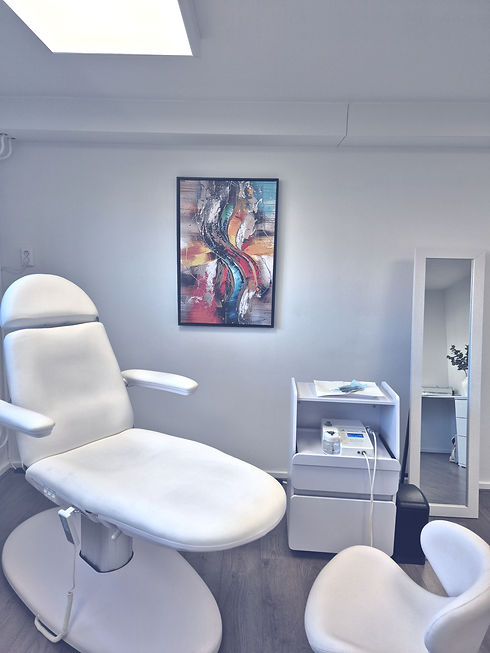
Treatments
A medical pedicure treatment is a specialized foot care that goes beyond a standard pedicure. It focuses on the prevention and treatment of foot problems, especially in people with medical conditions such as diabetes, rheumatism, spasticity, cancer or age-related problems.
What does a medical pedicure treatment involve?
✔ Screening and diagnosis: Inspection of the feet to detect problems early.
✔ Treatment of foot problems: Care of calluses, corns, cracks, fungal nails and ingrown nails.
✔ Specialist techniques: Use of nail braces, orthoses (toe pieces) and pressure-relieving techniques to relieve complaints.
✔ Preventive care: Advice and guidance to prevent foot problems.
✔ Collaboration with specialists: If necessary, consultation with podiatrists, doctors or other healthcare providers.
A medical pedicure is ideal for people with risk feet, but also for anyone who needs professional foot care. Do you suffer from foot complaints or do you want to keep your feet healthy? Then make an appointment for an expert treatment! 😊
Price list treatments
Care Module Prevention
The new care module Prevention of Foot ulcera focuses on improving foot care for people with an increased risk of foot ulcers, such as diabetes and rheumatism patients. This module emphasizes early detection, preventive treatments and multidisciplinary collaboration to prevent serious complications, such as wounds and amputations.
What does the care module entail?
✔ Risk assessment: Regular screening of the feet to detect risk factors such as neuropathy, vascular problems and pressure points in time.
✔ Preventive foot care: Specialist medical pedicure treatments to reduce calluses, corns and pressure points.
✔ Use of aids: Fitting nail braces, orthoses and pressure-reducing techniques to prevent foot problems.
✔ Collaboration with healthcare providers: Coordination with general practitioners, podiatrists and specialists for an integrated approach.
✔ Patient education: Advice on self-care, shoe selection and daily maintenance to minimize complications.
This care module places more focus on prevention rather than cure, which contributes to a better quality of life for at-risk patients.

